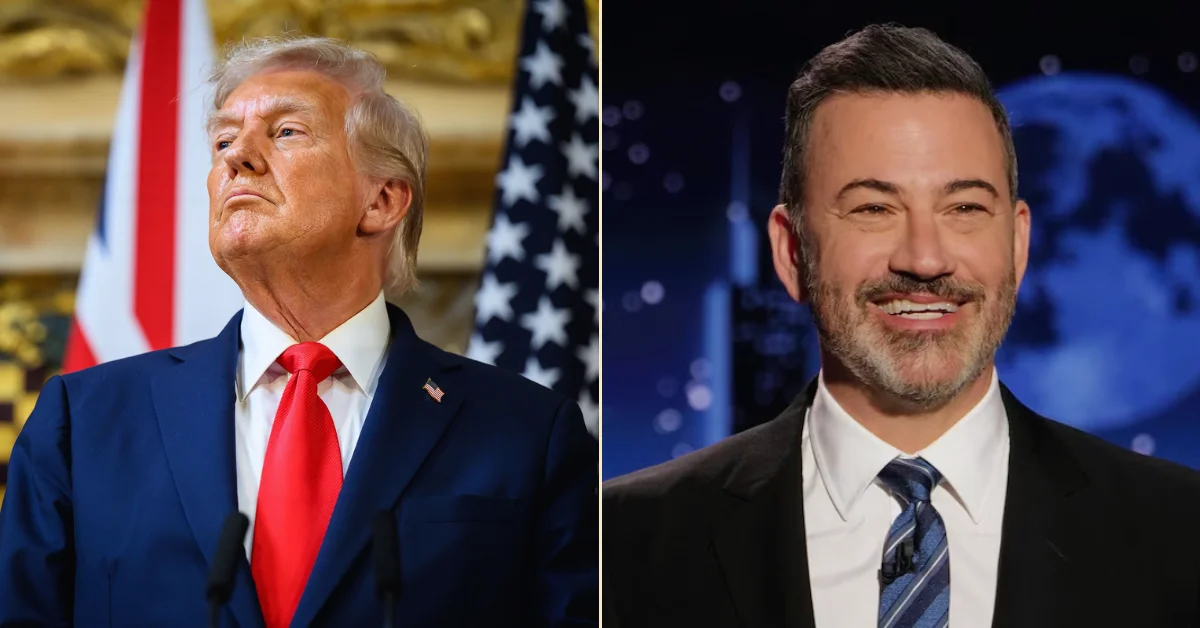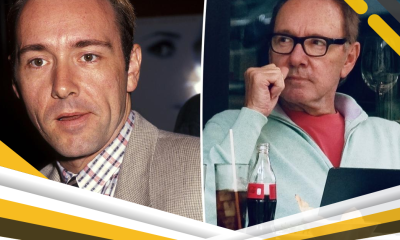Trump on Jimmy Kimmel Return: How Trump’s Reaction Boosted Jimmy Kimmel’s Cultural Relevance

I’ve observed a fascinating dynamic in the landscape of late-night television and political commentary, particularly concerning the interplay between political figures and media personalities. One particularly salient example revolves around former President Donald Trump and late-night host Jimmy Kimmel.
When we analyze the specific instances of Trump’s public reactions to Jimmy Kimmel, it becomes evident how these interactions, whether intended or not, have significantly contributed to boosting Jimmy Kimmel’s cultural relevance within the broader media sphere. This article will delve into the specific mechanisms through which Trump’s commentary amplified Kimmel’s platform, examining the ripple effects across viewership, public discourse, and the perception of late-night comedy as a critical voice in contemporary culture.
| Detail | Donald J. Trump | Jimmy Kimmel |
|---|---|---|
| Occupation | 45th U.S. President, Businessman, Media Personality | Late-Night Talk Show Host, Comedian, Producer |
| Notable Shows/Platforms | “The Apprentice”, Rallies, Social Media (Truth Social) | “Jimmy Kimmel Live!” |
| Political Stance (Perceived) | Conservative, Republican | Liberal, Democratic-leaning |
| Primary Audience (General) | Conservative base, Republican voters | General late-night audience, often younger and more liberal |
The Genesis of a Media Dynamic
The relationship between Donald Trump and Jimmy Kimmel, at least in the public eye, has been characterized by a noticeable degree of antagonism, particularly from the former President’s side. While Kimmel had previously engaged in political humor, the intensity and frequency of his satirical takes on Trump escalated significantly during and after Trump’s presidency.
This, in turn, drew direct responses from Trump, primarily through his social media platforms and public statements. These early exchanges set the stage for a recurring cycle where Kimmel’s critiques would elicit a reaction from Trump, subsequently drawing more attention to Kimmel’s show and his comedic commentary.
Trump’s Public Reactions: A Catalyst for Kimmel’s Visibility
I’ve identified several instances where Donald Trump’s direct or indirect comments about Jimmy Kimmel have served as a significant amplifier for the late-night host. For example, during his presidency and post-presidency, Trump frequently criticized media figures he perceived as unfair, and Kimmel often found himself among them. These criticisms, often shared with millions of followers, had a dual effect.
First, they validated Kimmel’s comedic premise for his existing audience, reinforcing his role as a critic of the administration. Second, and perhaps more importantly, they introduced Kimmel and his work to an entirely new demographic: Trump’s fervent supporters and those who closely followed political news, regardless of their personal alignment.
One notable instance involved Trump taking aim at Kimmel’s ratings, a common tactic used by the former President against perceived adversaries in media. For example, after Kimmel hosted the Oscars, Trump posted on Truth Social, suggesting Kimmel was “not a particularly talented guy” and advising him to “get off the ‘TRUMP BASHING KICK,’ and open up the minds of all those poor, confused, and dying people who are in love with an obviously dying Liberal network, and highly UNTALENTED people”.
Such direct mentions from a figure with Trump’s massive platform immediately catapulted Kimmel into a more prominent position within national political discourse. These pronouncements often became news themselves, extending Kimmel’s reach beyond his regular broadcast time and audience.
Measuring the Boost in Relevance
From an analytical perspective, the impact of Trump’s reactions on Jimmy Kimmel’s cultural relevance can be observed through several metrics. While direct causal links are complex to establish, the correlation is compelling.
- Increased Media Coverage: When Trump commented on Kimmel, it wasn’t just his own followers who saw it. News outlets across the political spectrum reported on these interactions, giving Kimmel’s show and his comedic stance broader mainstream attention.
- Social Media Engagement: Each time Trump mentioned Kimmel, it sparked a flurry of activity on social media platforms. Supporters and detractors alike engaged with the content, sharing clips of Kimmel’s monologues or debating Trump’s critiques, thereby increasing organic reach and discussion around Kimmel.
- Audience Expansion: While difficult to quantify precisely, the sheer volume of discussion surrounding these exchanges likely exposed Kimmel to viewers who might not have typically tuned into “Jimmy Kimmel Live!”. This ‘curiosity factor’ could lead to new viewership, even if temporary.
- Reinforced Identity: For his existing audience, Trump’s attacks solidified Kimmel’s image as a courageous and relevant voice willing to challenge powerful figures. This reinforcement strengthens audience loyalty and the perception of Kimmel as a significant cultural commentator, not just a comedian.
Kimmel’s Strategic Response and Leveraging the Spotlight
I’ve observed that Jimmy Kimmel and his team have been adept at leveraging these interactions. Rather than shying away, Kimmel often directly addressed Trump’s criticisms on his show, incorporating them into his monologues.
This strategy created a continuous feedback loop: Trump criticizes Kimmel, Kimmel responds on air, generating more news, potentially eliciting another Trump reaction. This not only provided Kimmel with fresh comedic material but also framed him as a direct interlocutor with a major political figure, elevating the stakes and perceived importance of his commentary.
This back-and-forth transformed what might have been isolated comedic bits into an ongoing narrative, keeping Kimmel in the news cycle and at the forefront of discussions about the intersection of politics and entertainment. It allowed Kimmel to strategically position himself as a voice willing to stand up to political power, a role that resonates deeply with a segment of the late-night audience.
Long-Term Implications for Late-Night Television
The “Trump on Jimmy Kimmel” dynamic, in my analytical view, offers broader insights into the evolving role of late-night television. In an increasingly fragmented media landscape, direct engagement (even adversarial) with powerful political figures can be a potent tool for maintaining cultural relevance.
It highlights how political commentary, delivered through a comedic lens, can transcend entertainment to become a significant part of the national political conversation. This particular interaction showcased how a late-night host could gain significant visibility and reinforce their brand identity by becoming a direct target of a prominent political figure.
Conclusion
In my assessment, Donald Trump’s reactions to Jimmy Kimmel—whether critical tweets, public statements, or direct accusations—have played an undeniable role in boosting Jimmy Kimmel’s cultural relevance. These interactions elevated Kimmel from a popular late-night host to a more prominent figure in the national political discourse.
By directly engaging with a figure as polarizing and attention-grabbing as Trump, Kimmel found himself in a unique spotlight, amplifying his comedic voice and reinforcing his perceived importance as a cultural commentator. This dynamic serves as a compelling case study in how media personalities can achieve heightened relevance through direct, even adversarial, engagement with powerful political figures in the contemporary media landscape.
FAQ Section
While directly linking specific comments to precise ratings bumps is complex, the increased media coverage, social media engagement, and overall public discussion generated by Trump’s reactions undeniably boosted Kimmel’s visibility and cultural relevance, which can indirectly influence viewership. Research indicates that during the Trump presidency, political engagement in late-night shows saw a significant uptick.
No, Jimmy Kimmel, like many late-night hosts, has always incorporated political humor into his show. However, the intensity and focus on Donald Trump and his administration became a much more prominent feature of “Jimmy Kimmel Live!” during and after his presidency, in part due to the reciprocal nature of their public interactions.
Yes, many late-night hosts, including Stephen Colbert, Trevor Noah (during his tenure), and Seth Meyers, also saw their political commentary amplified during the Trump era. The unique aspect with Kimmel was the specific, direct, and often personal nature of Trump’s critiques aimed directly at him, which created a particularly potent feedback loop for cultural relevance.












